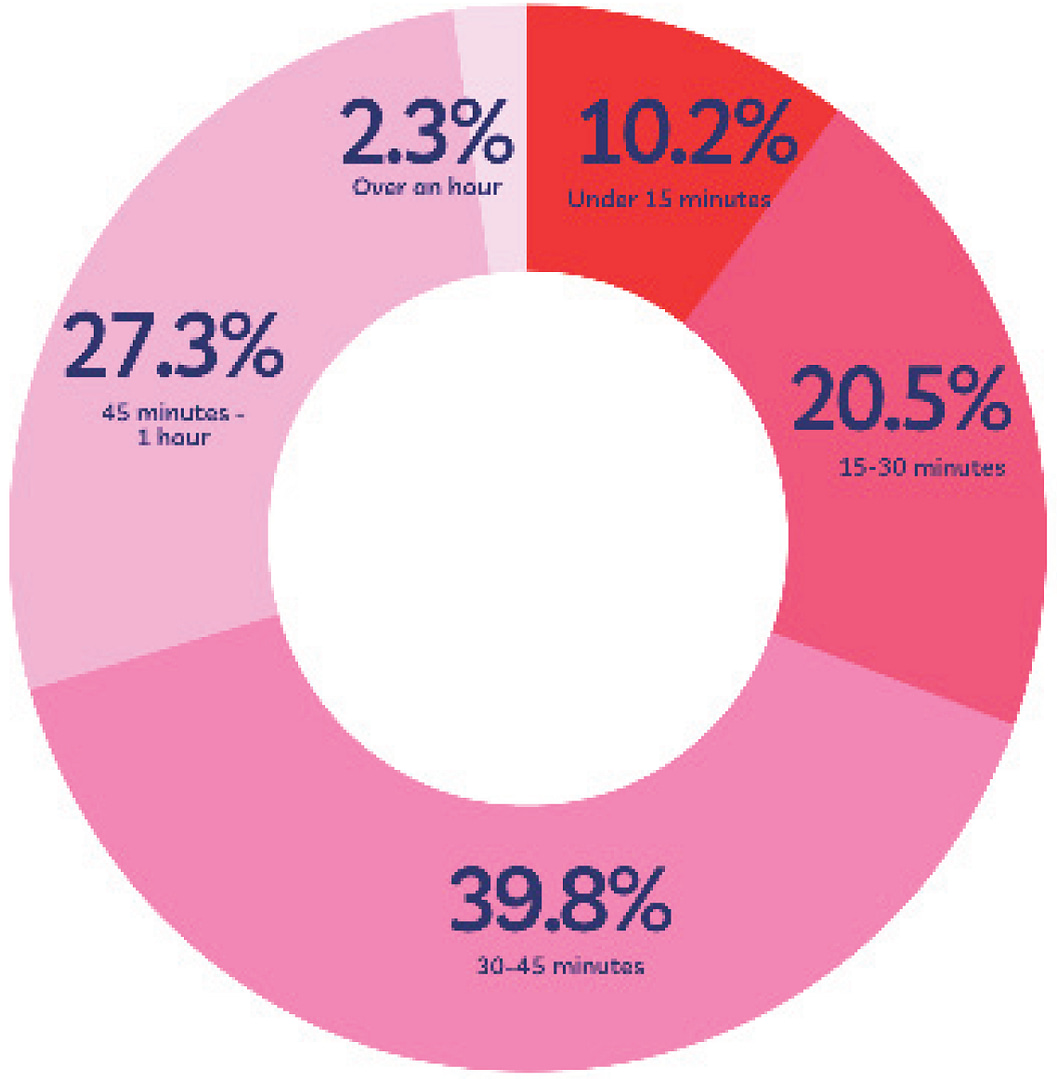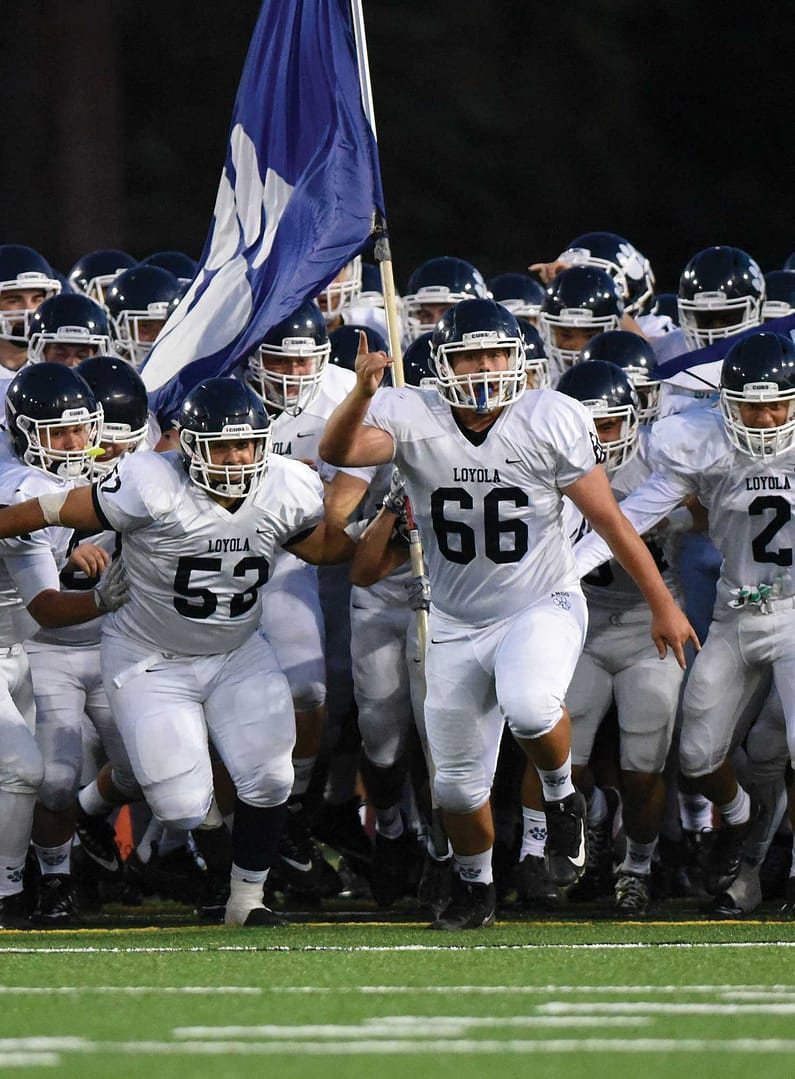Over the summer, the Loyalist sent Luka Lekovic, Jason Omori, and Charlie Viehl to attend the Loyola football summer camp. The coaching staff was welcoming and excited to have the Loyalist on board. The Loyalist members were given an all-access, behind the scenes look at the Loyola football program by attending meetings, practices, and meals. The goal of the Loyalist was to report on how Camp Dawson plays a very important role in the team’s success and camaraderie.
A HISTORY OF EXCELLENCE
The camp is named after Jon Dawson, a former athletic director and assistant coach at Loyola. In 23 seasons as the defensive coordinator, Dawson’s defenses allowed an average of under 10 points per game.
Head Coach Rick Pedroarias ’84 said, “As the athletic director, he built the modern day Loyola program in athletics. The program really began to grow and prosper under his leadership.”
Pedroarias said that the style of the team under Dawson can be emulated today.
Pedroarias said, “He was one of the premier defensive coordinators in CIF. His defenses were ranked in the top ten every year. He had a simple approach that focused on being fundamentally sound, and now we’re just trying to model that.”
NEW LEADERSHIP
Faced with the prospect of hiring a new football coach, Loyola hired from the inside by promoting Pedroarias.
Starting his inaugural season as head coach, Pedroarias has been involved with the Loyola football program for over 25 years.
Team Mom Bren Wells said, “Before Coach Pedroarias took over, the sophomore football team had a legendary winning streak–they were undefeated for years.”
“When Pedroarias was named head coach there was incredible pressure to keep the streak alive, and he did. He had a phenomenal record as the sophomore head coach.”
Pedroarias said, “These guys are Loyola students who play football. It’s our job as coaches to mold them into the men that Loyola wants them to be, and we accomplish this through football.”
A RETURN TO TRADITION
Pedroarias knows the tradition of excellence that comes with Loyola, as he was a part of the 2005 CIF Championship team as an assistant coach. In order to restore the tradition that makes up the Loyola football program, Pedroarias made a few changes.
Junior offensive guard and outside linebacker, Marcus Aguilar says, “He brought back the tradition. It’s old school.” Instead of sleeping in Xavier Center, players slept in Leavey Gymnasium this year, bringing back a long tradition.
“Sleeping over is great because we really get to know each other. The more you like someone the harder you’re gonna play for them and the more you’re gonna suffer for them,” says varsity captain Ty Mahar.
AN ALUM PRESENCE
Pedroarias has decided to place a theme that fits each week, headlined by an alum speaker.
Some of the themes Pedroarias has chosen are “The Team that Turns it Around,” “Hard Work,” and “Mental Toughness.” The speakers for those weeks are Anthony Barr ’10, Tim Rogus ’16 and Tommy McAndrews ’16, John Kvasnicka ’66, respectively.
Pedroarias pulls from so many different alumni because each of them have various perspectives to offer to the current team.
Barr is a recent graduate who has made a Pro Bowl for the Minnesota Vikings. Tim Rogus and Tommy McAndrews graduated two years ago, so many of the current players on the roster are familiar with them. Lastly, John Kvasnicka is an alumnus who can show how important maintaining the storied tradition of Loyola brings.
Pedroarias has affected the team’s mindset and strategy going into each game. Senior captain Dakota Smith said, “We’ve definitely developed a more hard-nosed attitude and the overall culture of the team has changed in that way. We work harder and are much more focused this year.”
Football Aspect
One of Pedroarias’ goals for the camp is to fit the football program into the framework of the school. This means that Pedroarias is challenging his players mentally by having them memorize plays, signals, and calls that correlate onto the field. During team meetings, the coaches quiz these players on what certain calls mean. For example, Coach Quedenfeld calls on players in order to catch them off guard. If a player gets the question wrong, the coaches do not chastise him but rather help him to understand the meaning behind the call so he can remember it during a game situation.
X’S AND O’S
During team meetings, coaches quiz the players on what certain calls mean. For example, Coach Quedenfeld calls on players in order to catch them off guard. If a player gets the question wrong, the coaches do not chastise him but rather help him to understand the meaning behind the call so he can remember it during a game situation.
Quedenfeld emphasized the importance of the unification that takes place during the Camp.
“The purpose of Camp Dawson is to develop multiple facets of football. It brings the team together as one unit, not separate, individual positions or people,” Quedenfeld said. “Camp Dawson is also there for refining the team on offense, defense, and special teams. We focus on the technique and physicality of football.”
Coach Quedenfeld also noted that there is more to football than X’s and O’s. “We also want to build mental toughness. One of our goals as coaches is to push our players to the brink of their capabilities even though we know that they can push through that. We’re trying to see who pushes through adversity and who doesn’t. We hope that the players who don’t are picked up by the other guys.”
Unlike the past, CIF prohibits practicing twice a day, two days in a row. In order to remain competitive, Loyola has to utilize their non-practicing time efficiently. Junior Marcus Aguilar says, “We can either have shorter practices with a longer camp, or longer practices with a shorter camp.”
The ultimate function and goal of Camp Dawson is to improve the players in all facets of the game and improve the team. As opposed to regular practice, Camp Dawson allows the players to be focused only on football without any outside distractions.
Now that the season has started and Camp Dawson has taken place, it is up to the players to carry the new culture of the team onto the field perform each week on the field.






Comments are closed.